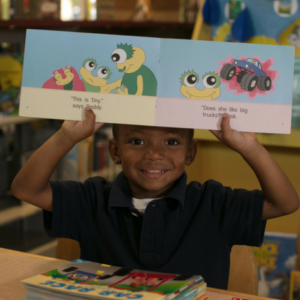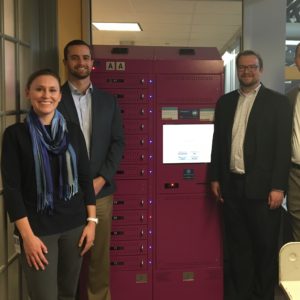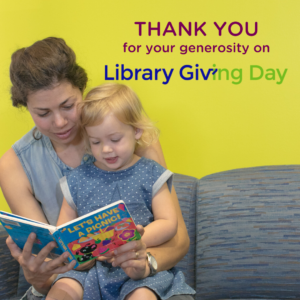Summer programs support academic growth.
It seems intuitive that kids who read all summer will return to school with their skills sharp and ready for the classroom. And now we have proof.
Charlotte-Mecklenburg Schools’ test results show a promising correlation: Students who participated in the Library’s 2015 Summer Reading program showed greater growth in reading proficiency from spring to fall 2015 than those who didn’t, across all grade levels. “Many studies have shown that summer programs support academic growth,” says Library CEO Lee Keesler. “What makes this so exciting is that it’s specific to our students.”
Partners for Student Success
The scores are from MAP (Measures of Academic Progress) tests given to students in spring and fall, 2015. These tests measure units of growth, called Rausch Units, or RIT’s, which are consistent regardless of each student’s overall achievement. For example, a student whose score increases from 165 in the spring to 170 in the fall shows the same instructional growth as a student who increases from 280 to 285. On average, students who completed the Library’s Summer Reading program between the spring and fall tests scored a significant 6.7 RIT points higher than those who didn’t participate. Further analysis reveals that 85% of Summer Reading completers were Grade Level Proficient based on fall 2015 test results, compared with 62% of non-participants.
Scores like these are shared with the Library as part of our groundbreaking ONE Access partnership with Charlotte-Mecklenburg Schools, which allows students to access Library materials with a school ID number. Charlotte-Mecklenburg Schools Superintendent Ann Clark notes, “The Library/CMS partnership is extraordinary, and this data allows us to see the correlation between our shared efforts to support student reading improvement.”
The Library’s summer program is made possible in part through the longtime support of corporate sponsor Wendy’s. New last year, the program was expanded and rebranded as “Summer Break.” It still emphasizes reading, but adds opportunities to explore, discover, and play in the community.




